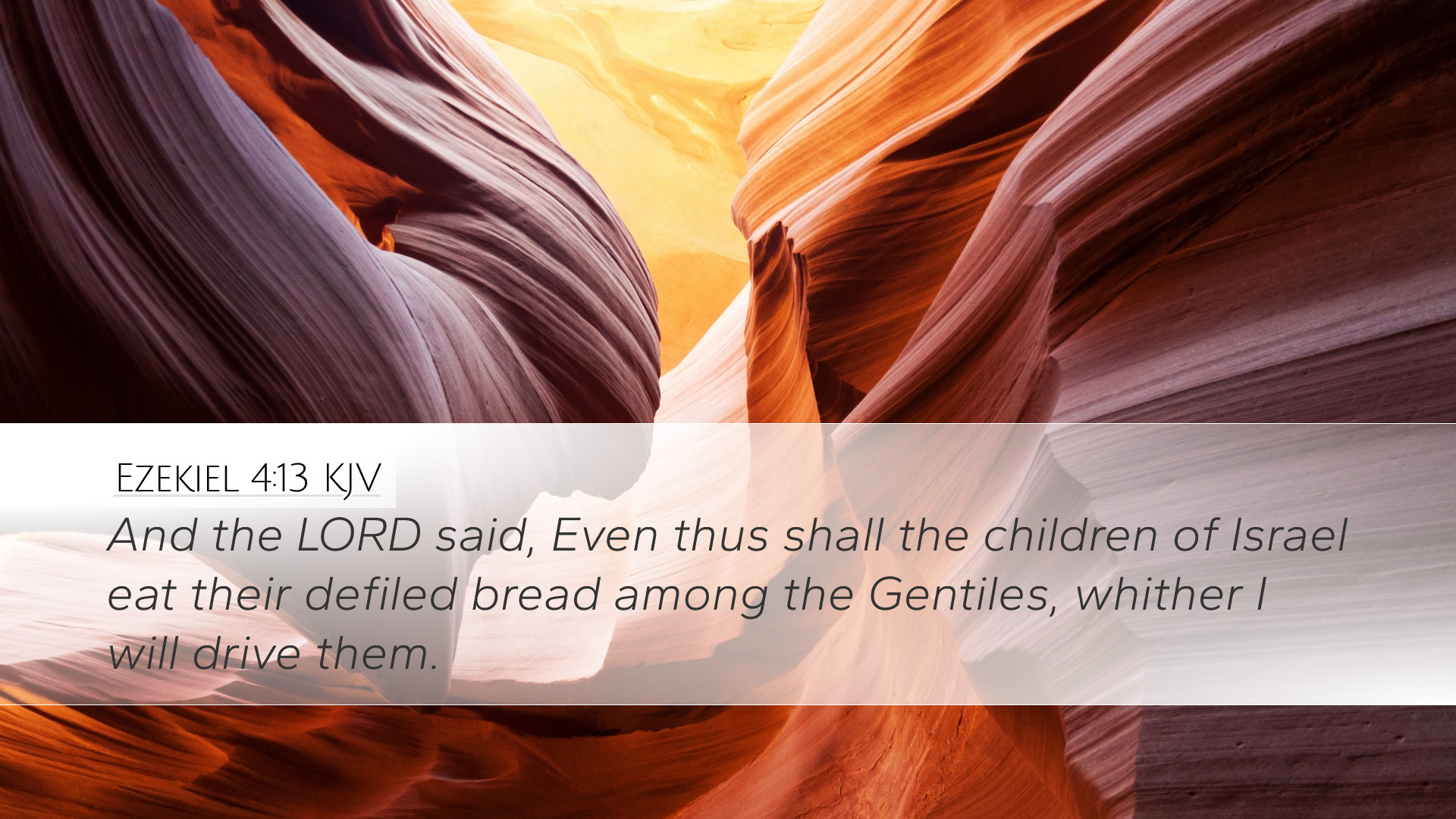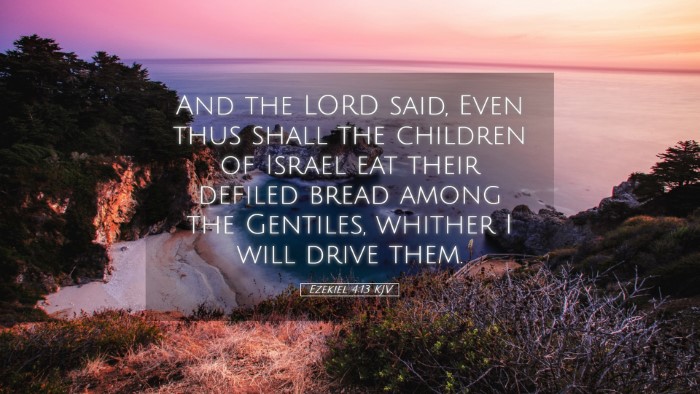Ezekiel 4:13 Commentary
Verse Context: Ezekiel 4:13 states, "And the LORD said, Even thus shall the children of Israel eat their defiled bread among the Gentiles, whither I will drive them." This verse encapsulates the profound theme of judgment and consequence that runs throughout Ezekiel’s prophetic ministry. It reflects God’s displeasure with Israel's unfaithfulness and the resultant purification through adversity.
Historical Background
The context of Ezekiel’s ministry is crucial, as he prophesied during the Babylonian exile. Israel, once a covenant nation, had strayed into idolatry, prompting divine judgment. Ezekiel’s actions and the messages were not merely symbolic, but were deeply interwoven with the lived reality of the Israelites in exile.
Symbolism of Defiled Bread
According to Matthew Henry, the defiled bread signifies the spiritual defilement of Israel. The act of eating such bread among the Gentiles symbolizes their estrangement from God and their exposure to the impurity of the surrounding nations. This imagery serves as a stark reminder of the consequences of disobedience.
Albert Barnes expands on this idea by highlighting how the Israelites would experience a loss of dignity and sanctity—traits that were once inherent to their identity as God’s chosen people. Eating defiled bread among Gentiles is indicative of a harsh reality: that they would no longer partake of the sacred provisions of God, but rather, suffer the indignities of a life apart from Him.
Theological Implications
One of the overarching themes outlined by Adam Clarke is the idea of judgment and the profound consequences of sin. He emphasizes that while God’s judgment is severe, it is also restorative. God desires for His people to recognize their need for repentance, which in turn, will lead them back to His grace.
This verse illustrates a significant theological principle: that disobedience to God leads to inevitable consequence, a theme seen throughout the prophetic books. The emphasis is not merely on punishment, but rather on the ultimate restoration of Israel after they come to terms with their sin.
Applications for Today
For modern believers, this passage serves as a warning against complacency in faith. Henry suggests that just as Israel faced judgment for their unfaithfulness, contemporary followers of Christ must be vigilant against the subtle influences that lead away from God’s commandments.
- Call to Reflection: Individuals are encouraged to evaluate their lives for any areas of compromise where they may be consuming 'defiled bread' in a metaphorical sense—whether that be through unholy influences, unwise associations, or moral ambivalence.
- Value of Repentance: A key takeaway is the importance of repentance. Just as Israel was called to recognize their sin, believers today are reminded that sincere repentance leads to God’s forgiveness and a restored relationship with Him.
- Understanding God’s Judgment: Emphasizing that God’s judgment is not arbitrary but rooted in love and the desire for holiness can help contemporary Christians to understand their own struggles against sin in light of a gracious God who desires restoration.
Conclusion
Ezekiel 4:13 provides profound insights into the nature of God's relationship with His people—a dynamic that reflects both His holiness and His grace. The commentary provided by Matthew Henry, Albert Barnes, and Adam Clarke underscores the importance of examining one’s faithfulness to God amidst the trials of life.
In a world filled with distractions and moral ambiguity, this verse challenges believers to take heed of their spiritual diet. Are they feasting on the truths of God, or consuming the defiled offerings of a sinful world? The call is for holiness and repentance, leading to a deeper relationship with the Holy One who longs for His people to return to Him.


